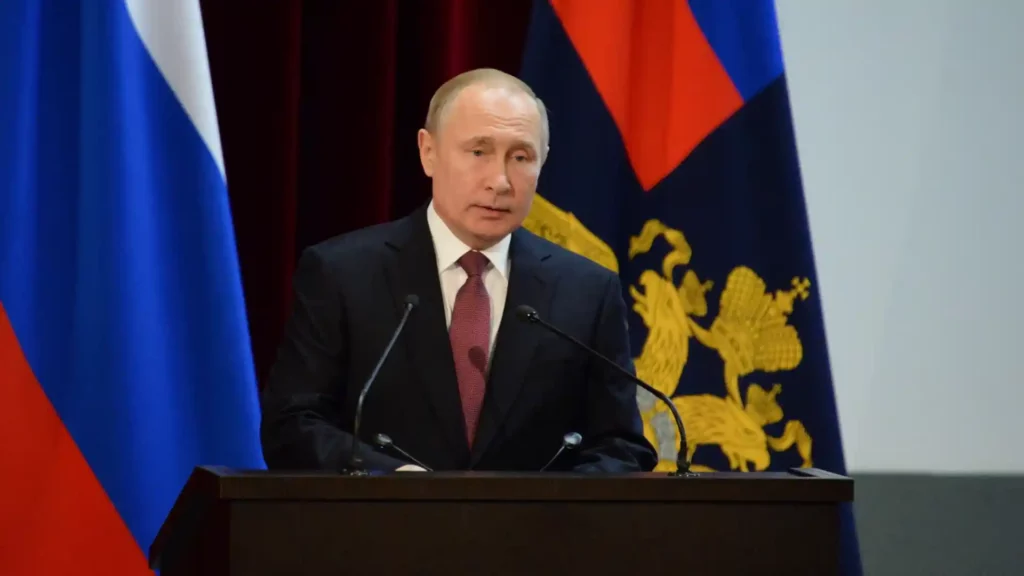The new six-year term will see Putin surpass Joseph Stalin, becoming the longest-serving leader in 200 years if completed.
Sunday 17th March marked a historic day for Russia as Vladimir Putin, who has been the president or prime minister of the country since 1999, won a record victory in electoral polls. The election officials revealed that the results gave him more than 87% of the vote, which intensified his power grip.
The new six-year term will see him surpass Joseph Stalin, becoming the longest-serving leader in 200 years if completed. According to the exit poll by the Public Opinion Foundation, 87.8% of the vote is the highest ever recorded result in post-Soviet Russia. Official results indicated that the polls were precise but Western nations such as the United States, the United Kingdom, and Germany raised concerns regarding the credibility of elections due to censorship and the captivity of political rivals.
“The elections are obviously not free nor fair given how Mr. Putin has imprisoned political opponents and prevented others from running against him,” the spokesperson of the National Security Council of the White House stated.
25 years in power
Vladimir Putin, the former KGB (former domestic security and foreign intelligence agency of the Soviet Union) lieutenant colonel has held continuous positions of power as the President or the Prime Minister since 1999. These results further send a hard and fast message to the West and its leaders that they will have to consider a much stronger Russia in every aspect, in the many years to come.
In the victory speech after the elections, Putin emphasized the prioritizing of strengthening the Russian military and dealing with the duties associated with what they call a “special military operation” in Ukraine.
The second and third positions in the elections were held by Communist candidate Nikolai Kharitonov and Vladislav Davankov respectively. Leonid Slutsky came in fourth position, according to partial results.
Despite the criticisms from other countries, Putin hailed the elections in Russia as democratic and fair and the ongoing protests had no particular effect on the results outcome.
The election in Russia happened after two years of the Russia-Ukraine war, which could be seen as the deadliest European conflict since World War 2. According to election officials, the nationwide turnout was 74.22% when the polls closed. This surpassed the turnout of the previous election that happened in 2018 which stood at the level of 67.5%.
How does it affect the Russian economy?
The inflation levels are higher now, reaching 7%, above the central bank’s goal of 4%. The unemployment rate, however, is low. According to the International Monetary Fund, the economy is expected to grow 2.6% this year. The spending on military equipment and payments to volunteer soldiers are helping the economy grow.
The construction sector is booming, and government-subsidized mortgages are an added advantage to the sector. The planned government spending this year is double the amount than what it was in 2018. But the deficit remains adaptable as oil revenues and taxes keep coming in.
The parallel imports through third countries such as Kazakhstan or Georgia have helped Russia to buy Western products. However, the companies faced labour shortages after many people left the country as the Russia-Ukraine conflict intensified. This was done mainly to avoid mobilization and many others signed military contracts.
Russia’s oil exports shifted from Europe to China and India due to protests from Ukraine’s allies. To avoid further sanctions and price caps, Russia had to spend billions to buy a fleet of tankers that are not associated with the Western insurers who have to follow the price ceiling.
The future economic prospects of the country are still uncertain. Foreign investments have significantly reduced affecting technology and productivity. The government bounty may exceed the central bank’s ability to control inflation. But as of now, the state finances are more stable than expected.
